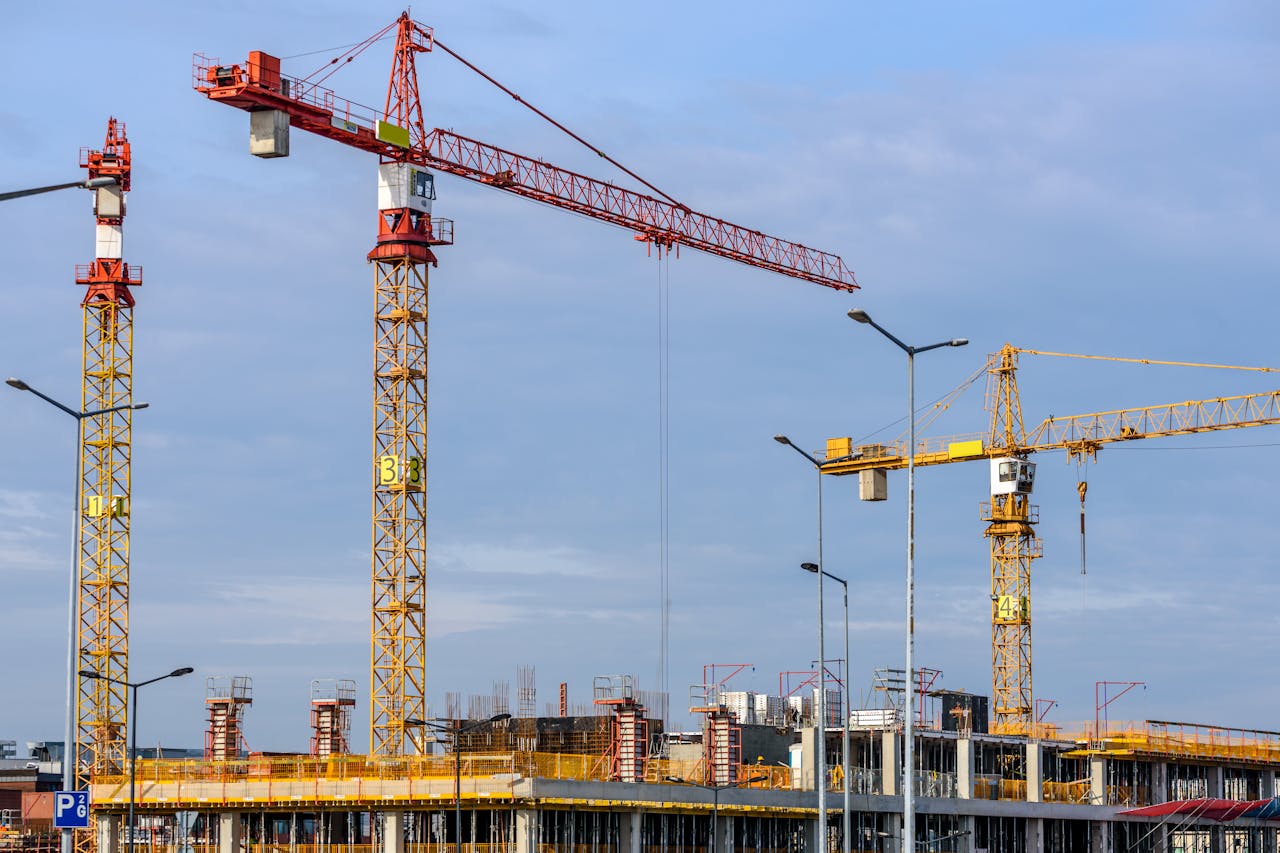Safety protocols are a vital aspect of constructing wastewater treatment plants. These facilities play a crucial role in our communities by treating sewage and wastewater, making it safe before it returns to the environment. Ensuring safety on-site means safeguarding the workers and the environment around the construction area. Without proper safety measures, there could be significant risks, not just to the people directly involved but to the larger community as well.
Ignoring safety precautions in such projects can lead to accidents and health hazards. That’s why placing a strong focus on safety is paramount from the get-go. Addressing these aspects head-on means minimizing risks and creating a work environment where everyone can operate efficiently without worry.
Understanding Safety Protocols in Wastewater Treatment Plant Construction
Safety protocols in this context refer to the rules and procedures that guide how construction teams work, aiming to prevent accidents and safeguard health. In constructing wastewater treatment plants, these protocols aren’t just advisable—they’re compulsory. They address various challenges, like handling hazardous materials that are common in these projects.
Building facilities that handle wastewater is complex due to the nature of the materials involved. For example, many elements of construction come with specific dangers, such as exposure to chemicals or working with heavy machinery in confined spaces. While constructing such plants, workers must navigate these challenges safely and comply with local and federal requirements.
– Clear guidelines help in dealing with:
– The safe transportation and storage of chemicals.
– Protection from harmful substances.
– Emergency response planning in case of onsite accidents or leaks.
The stringent safety measures ensure that construction can proceed without unnecessary hazards, providing peace of mind for everyone involved and paving the way for a successful project outcome. Emphasizing comprehensive training and the consistent application of these protocols establishes a foundation where safety remains the top priority every step of the way.
Key Safety Practices for Wastewater Treatment Plants
Establishing rigorous safety practices is fundamental in ensuring smooth operations during the construction of wastewater treatment plants. These practices focus on mitigating the specific risks associated with this type of construction project. One of the most important aspects is the handling of hazardous materials. Workers need specific training to manage and store chemicals safely, preventing any dangerous exposures or spills.
Proper personal protective equipment (PPE) is key to keeping workers safe. This includes gear like gloves, masks, and specialized suits when dealing with chemicals, as well as helmets and safety footwear to protect from physical hazards on-site. It’s crucial that all workers are not just provided with this equipment but are also trained in its proper use to maximize effectiveness.
Machinery safety is another priority. With heavy machinery in use, operators must be well-trained to manage these tools safely, reducing the risk of accidents. Regular maintenance and inspections of equipment further ensure that they function as required without unexpected failures.
– Core safety practices include:
– Detailed safety briefing sessions before operations.
– Consistent use of PPE by all personnel.
– Regular checks and maintenance schedules for all machinery.
Implementing these safety practices not only protects workers but also ensures the efficient and timely completion of projects.
Training and Compliance
Regular safety training for all workers is foundational in keeping a construction site secure. Training programs should cover the basics of safety protocols and provide detailed instructions on handling specific risks that come with wastewater treatment plant construction. Keeping these programs engaging helps reinforce the safety culture on-site.
Compliance with local and federal regulations plays a vital role in maintaining safety standards. These rules are there to protect not just the individual workers but also the environment and nearby communities. Regulatory standards establish a clear framework within which construction must operate, ensuring no step in the process compromises safety.
Breaches in compliance can lead to fines or project delays, emphasizing the need for thorough understanding and adherence to these regulations. Regular audits and reviews of safety practices should be conducted to ensure ongoing compliance and identify potential areas for improvement.
Innovative Safety Solutions
Incorporating modern technologies can significantly enhance safety measures at wastewater treatment plant construction sites. Innovations such as automation and real-time monitoring systems bring a new level of control and oversight. For instance, deploying digital monitoring tools can help detect unsafe conditions quickly, providing immediate alerts to prevent accidents.
Safety management software streamlines the tracking of safety measures and incident responses, ensuring that all protocols are followed efficiently. These tools facilitate a proactive approach, allowing for quick adjustments to safety plans as needed and reducing risks before they become issues.
Adopting these advanced solutions shows a commitment to creating the safest working environments possible. By staying informed about the latest technological developments, construction teams can continually improve their safety practices.
Ensuring Long-Term Safety in Wastewater Treatment Plants
The responsibility of safety doesn’t end once construction is completed. Long-term strategies must be in place to ensure the ongoing safety of the facility. Regular maintenance checks and thorough inspections can help identify any emerging hazards before they lead to problems.
Cultivating a strong culture of safety within the operational staff is another essential element. This involves continual training and an emphasis on reporting any safety concerns without hesitation. A well-informed team is a critical asset in maintaining a safe working environment.
Finally, integrating long-term safety into the core operation strategies ensures that wastewater treatment plants continue to operate smoothly and safely. This approach benefits not only those who work within the facilities but also the surrounding communities, ensuring that the valuable service these plants provide is done with the utmost care and responsibility.
By maintaining strong safety protocols in wastewater treatment plant construction, you’re not only protecting your workers but also ensuring a clean and safe environment for the surrounding community. Investing in regular training, compliance with regulations, and modern safety solutions can significantly boost safety standards. If you are looking to strengthen your project’s protection measures, explore how our expertise in wastewater treatment plant construction at Industra Construction Corp. can help you create a safer and more sustainable facility.

















